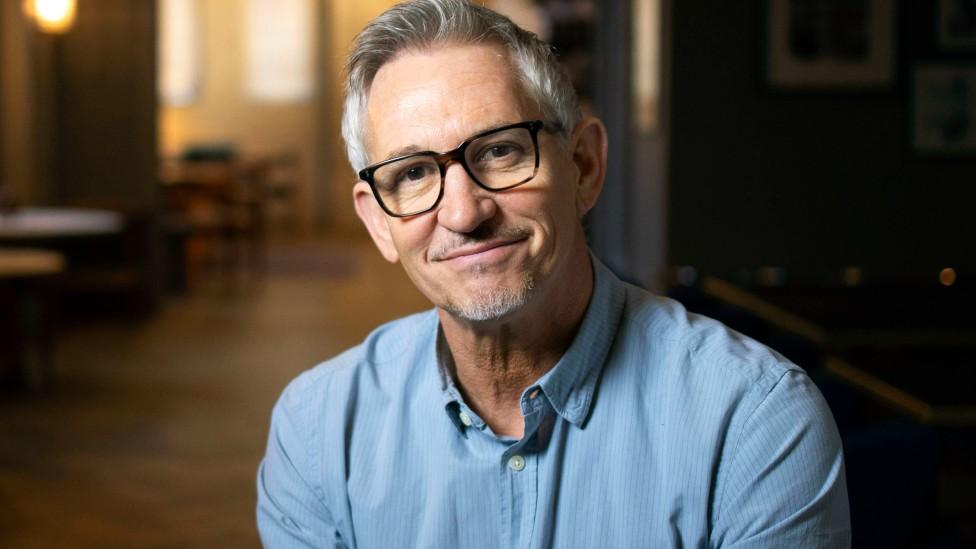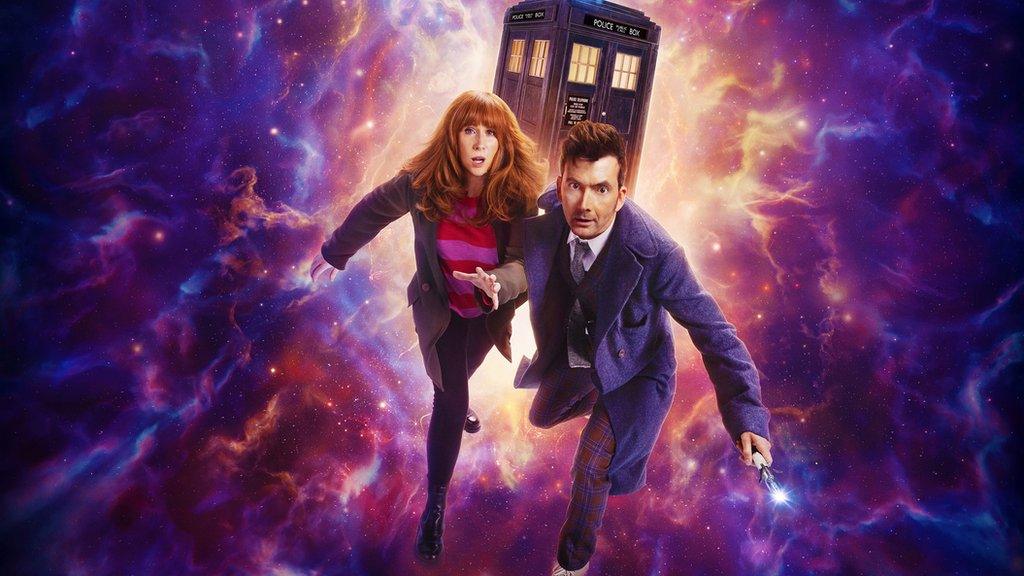Licence fee freeze will hit programmes, BBC director general says
- Published
- comments
Watch: TV licence freeze "will affect our frontline output"
BBC services and shows will have to be cut as a result of a funding gap arising from the latest licence fee deal, its director general has said.
Tim Davie said the settlement, which will see the cost of a TV licence frozen for the next two years, "will affect our frontline output".
Asked what might be cut, he said "everything's on the agenda".
On Monday, the culture secretary said the freeze would help people who are struggling with rising household costs.
Nadine Dorries told the House of Commons: "The BBC must support people at a time when their finances are strained, make savings and efficiencies, and use the billions in public funding it receives to deliver for viewers, listeners and users."
A TV licence currently costs £159, with the BBC receiving £3.7bn a year to fund services like TV, radio, the BBC website, podcasts, iPlayer and apps.
Culture Secretary Nadine Dorries: "This government is committed to supporting families as much as possible"
Ms Dorries said that, after the two-year freeze, the fee will rise in line with inflation until 2027, when the broadcaster's current royal charter expires.
She suggested in a tweet on Sunday, external that the licence fee will be abolished after that, although in the Commons on Monday, she said the future funding of the corporation was up for discussion and a review on its future would start shortly.
The BBC wanted the charge to rise with inflation for the remainder of the charter. Speaking to BBC Radio 4's Today programme on Tuesday, Mr Davie said the resulting funding gap would be £285m in the final year. There are also expected to be shortfalls in the years before that.
"Inevitably, if you don't have £285m, you will get less services and less programmes. Now, I still think the BBC can offer extraordinary value for £13 a month," he said.
He said the corporation, which turns 100 this year, has made "very good progress in terms of cutting costs that don't affect the licence fee payers" in recent years.
"We go first to those cuts where we don't affect our output... We are not at the place where you can never make cuts, but this will affect our frontline output. There's no doubt about that."
The BBC has said the corporation's income for UK services is already 30% lower in real terms than it was 10 years ago.
Last year, BBC chairman Richard Sharp warned about "super inflation" in production because of competition from global giants, saying: "The cost of some of our biggest series has more than doubled."
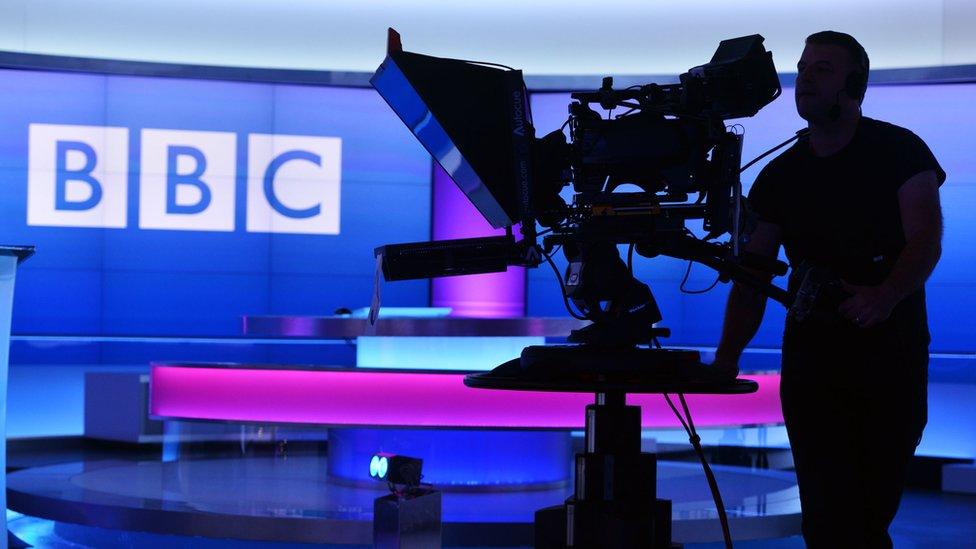
On Tuesday, Mr Davie acknowledged that "we need to reshape ourselves for a digital age".
"The media market is moving extremely rapidly," he said. "I'm excited about re-engineering the BBC. I think we're in a good place. We had an excellent Christmas, iPlayer is doing brilliant business for us in terms of the numbers we're getting through to our digital services.
"So we're not just going to put aspic around linear services or say we're going to keep doing exactly the same thing. We need to reshape the business."
Mr Davie said the BBC would change radically if it became a subscription service, which is one of the suggestions to replace the licence fee system.
"Once you're trying to serve a subscription base and a commercial agenda - and, believe me, I've run commercial businesses - it is a completely different situation, because suddenly you are doing things that are there to make profit and make a return to a specific audience," he said.
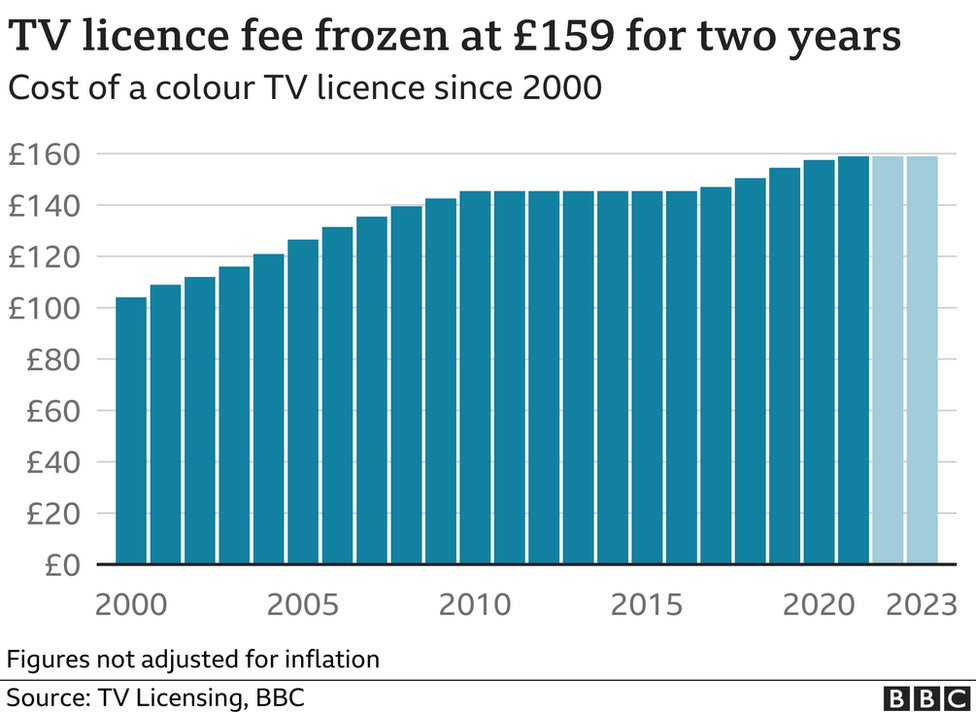
Ms Dorries said the UK needs "a BBC that can thrive alongside Netflix and Amazon Prime and all of its other challenges which attract younger viewers".
Following the announcement of the freeze, the culture secretary said attention would turn to the BBC's long-term funding model.
'Complicated' debate
Former Daily Telegraph editor Charles Moore wrote, external that the culture secretary "is choosing this moment because of the BBC's coverage of the revelations about Downing Street parties during Covid".
But he added: "The problem is that the BBC has made it easy for her." The corporation has not lived up to its obligation to be impartial, he said, and was "not far off being a Fox News of the Left".
The Guardian said, external the Conservative government was using the corporation "as a punchbag" and that major changes "cannot be decided by ministerial whim".
The paper suggested the BBC "might do very well" with a Netflix-style subscription model, but "it would not be the BBC as it exists today".
Writing in the Telegraph, Robin Aitken, author of Can We Trust the BBC?, said, external the corporation needs to show "evidence of genuine reform" if it is to "survive and prosper into a second century".
Former Channel 4 News boss Dorothy Byrne told BBC Two's Newsnight, external on Monday: "By all means, discuss getting rid of the licence fee.
"But for decades, people have looked at what would be a better alternative, and they couldn't come up with one. So don't announce the end of the one that we've got that works, until you have another one."
Allow X content?
This article contains content provided by X. We ask for your permission before anything is loaded, as they may be using cookies and other technologies. You may want to read X’s cookie policy, external and privacy policy, external before accepting. To view this content choose ‘accept and continue’.
Ex-media minister Lord Vaizey told the same programme that finding a better system was "complicated". On the funding, he said: "The BBC can't simply write itself a blank cheque.
"But having said that, I do feel very strongly that, with all the streaming platforms owned by US companies, with most of our broadcasters now owned by US companies, there is a place for a British Broadcasting Corporation in which we all have a stake."
Presenter and campaigner Esther Rantzen told BBC Hereford & Worcester that the licence fee "means that the BBC is answerable to the audience, not answerable to shareholders, not answerable to advertisers, and that makes a real difference".
She added that existing subscription services were "much more limited than what the BBC offers".
But The Times columnist Melanie Phillips said, external "the quality of BBC programming is replicated elsewhere, as the public can now see through streaming outlets and changing patterns of viewing".
Cat Lewis, chief executive of production company Nine Lives Media, which makes Songs of Praise among other programmes, told BBC Radio 5 Live's Wake Up To Money that cuts to BBC budgets will mean "we're going to have to make more cuts, that we can create fewer jobs".

Related topics
- Published17 January 2022
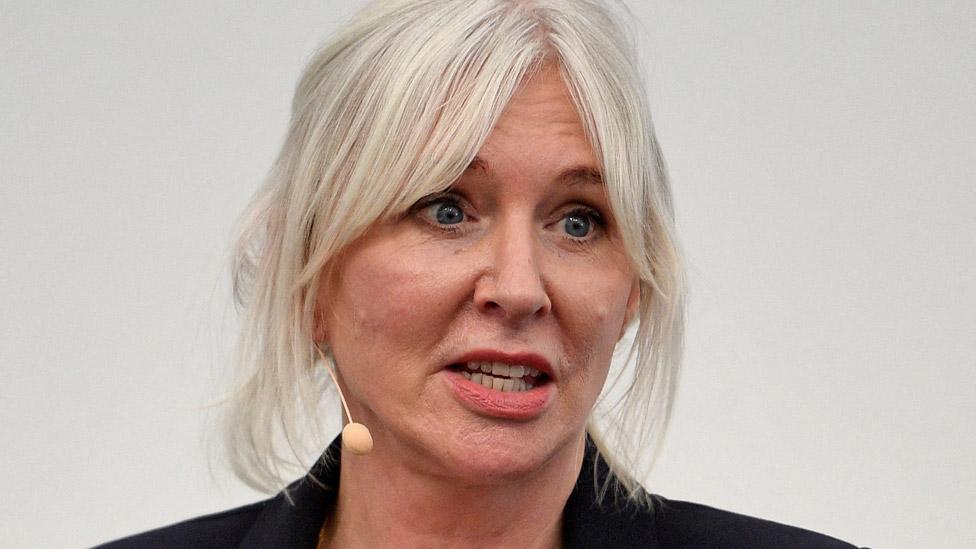
- Published16 January 2022
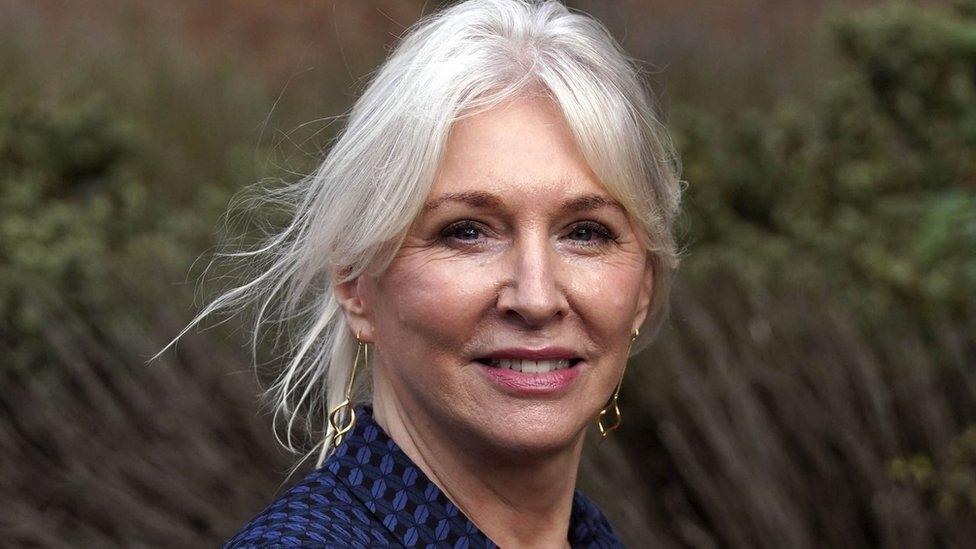
- Published19 November 2021
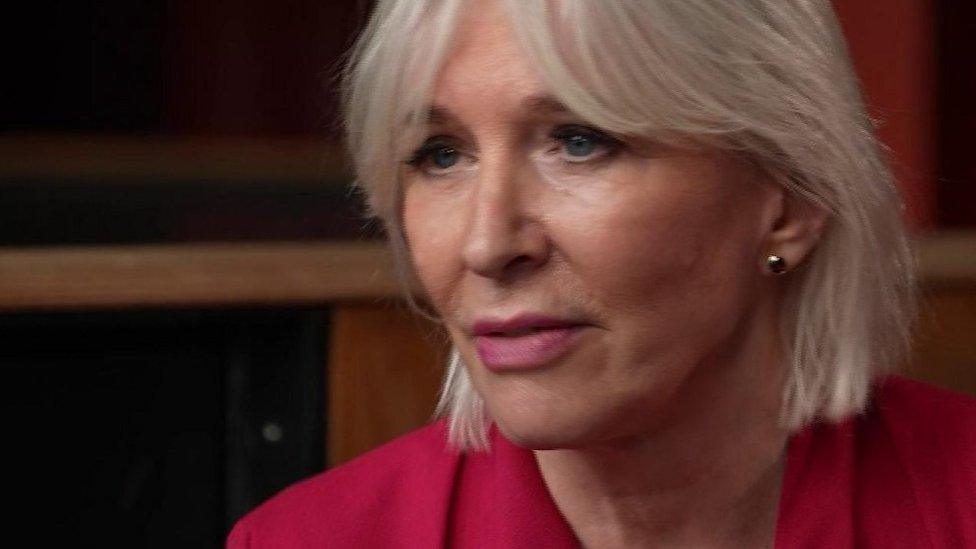
- Published4 October 2021

- Published6 July 2021
